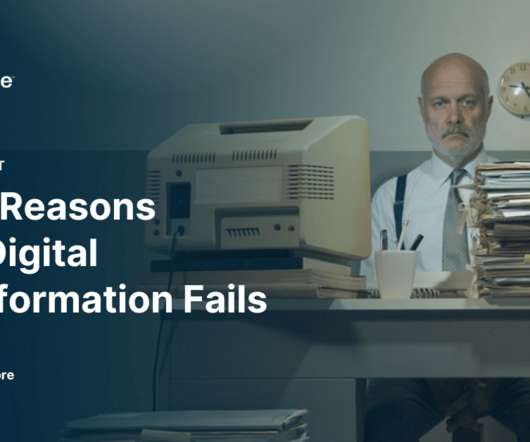5 signs your agile practices will lead to digital disaster
CIO
SEPTEMBER 20, 2023
Business leaders expect IT to develop new products, improve customer experiences, automate workflows, and deliver new artificial intelligence capabilities. Many IT teams use agile methodologies to iteratively deliver feature-rich releases, improve capabilities, address technical debt, and experiment with emerging technologies.

















Let's personalize your content